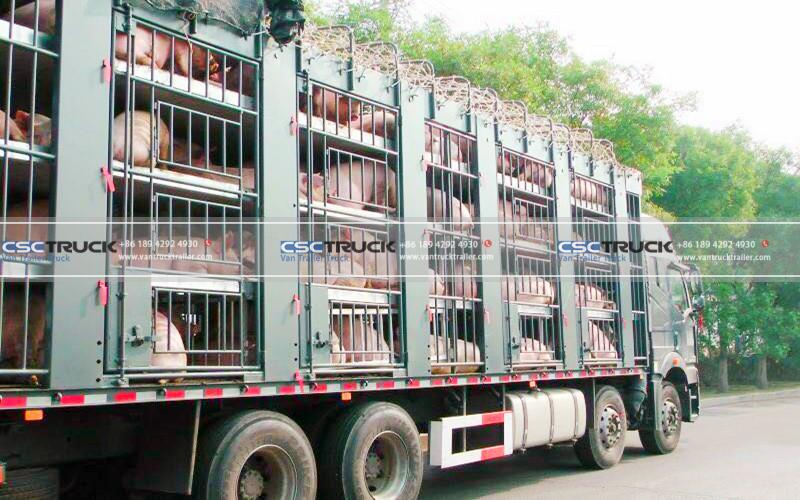The remote and rugged terrain of South Georgia and the South Sandwich Islands, situated in the Southern Atlantic Ocean, presents unique challenges for agricultural endeavors. Yet, amid these challenges, a recent development in livestock transportation is poised to significantly bolster animal husbandry in this remote British Overseas Territory.
The introduction of livestock truck shipments represents a pivotal advancement in the region’s agricultural infrastructure. Historically, transporting livestock across the islands has been arduous, primarily reliant on boats and helicopters due to the absence of comprehensive road networks. However, the advent of specialized livestock trucks has revolutionized this process, offering a more efficient and cost-effective means of transportation.
One of the primary beneficiaries of this innovation is the local farming community. With the ability to transport larger numbers of livestock overland, farmers can now expand their operations and increase production capacity. This is particularly significant given the islands’ limited arable land and harsh environmental conditions, which have traditionally constrained agricultural development.
Moreover, livestock truck shipments enhance animal welfare standards by minimizing stress during transportation. The trucks are equipped with advanced ventilation and monitoring systems, ensuring optimal conditions for the animals throughout the journey. This not only improves the well-being of the livestock but also enhances the quality of meat and dairy products produced in the region.
Another notable advantage of livestock truck shipments is their environmental sustainability. Compared to traditional transportation methods such as helicopters, which consume substantial amounts of fuel and emit greenhouse gases, overland transportation reduces carbon emissions and minimizes ecological impact. This aligns with global efforts to mitigate climate change and promote sustainable agricultural practices.
Furthermore, the introduction of livestock trucks stimulates economic growth and diversification in South Georgia and the South Sandwich Islands. By facilitating the movement of livestock to marketplaces and processing facilities, this infrastructure improvement supports the local economy and creates employment opportunities within the agricultural sector. Additionally, increased agricultural productivity can lead to greater food security and reduced dependency on imports, contributing to the islands’ overall resilience and self-sufficiency.
However, despite the numerous benefits, challenges remain in implementing and maintaining livestock truck shipments in this remote territory. The harsh weather conditions and rugged terrain pose operational risks, necessitating ongoing investment in infrastructure and equipment to ensure the reliability and safety of transportation services. Moreover, logistical complexities associated with coordinating schedules and routes in a sparsely populated region require careful planning and coordination among stakeholders.
In conclusion, the introduction of livestock truck shipments represents a significant milestone in advancing animal husbandry and agricultural development in South Georgia and the South Sandwich Islands. By overcoming logistical barriers and enhancing efficiency, this innovation holds the potential to transform the local farming industry, improve livelihoods, and promote sustainable practices. Moving forward, continued investment and collaboration are essential to realizing the full potential of this technology and unlocking the economic and environmental benefits it offers to the region.

